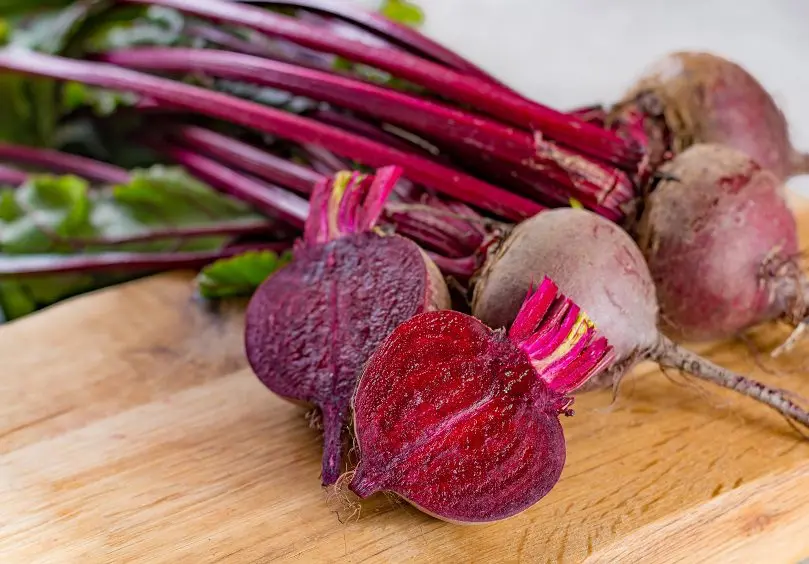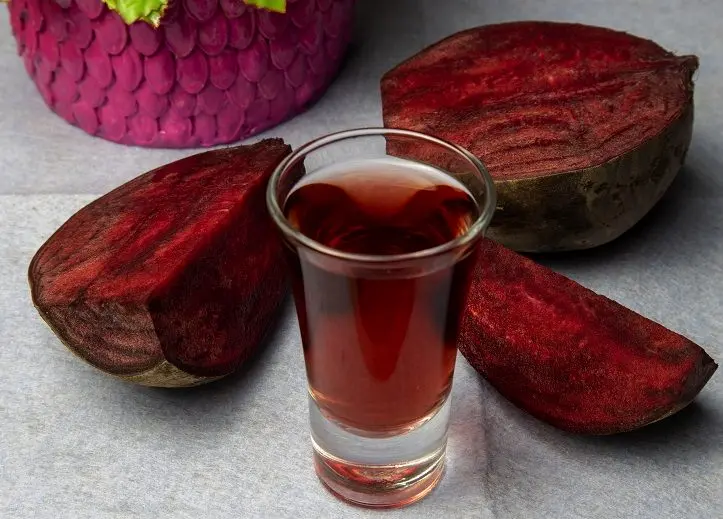Contents
In folk medicine, beets have long been used as an adjuvant in the treatment of hypertension and heart disease. Regular consumption of juices and root decoctions lowers cholesterol and blood sugar levels. Beetroot tincture cleanses blood vessels of cholesterol plaques, which reduces the risk of heart attack and stroke.
Useful properties of beets
The ability of beets to reduce blood pressure has been documented in many scientific sources. One study was conducted at Queen Mary University of London in 2015. The experiment involved 68 patients suffering from arterial hypertension, who drank beetroot juice daily for a month. People were divided into two groups, one of them took a placebo instead of beets.
At the final stage of testing, scientists recorded a persistent decrease in systolic and diastolic pressure, respectively, by 8 and 4 mm Hg. Art. in those patients who drank beetroot juice. Two weeks after discontinuation of treatment, the indicators returned to their previous state.

The researchers concluded that beets can be used as an adjuvant in the treatment of hypertension due to the high content of nitrates (nitric acid salts), which, when absorbed by the body, turn into nitric oxide. The substance expands the walls of blood vessels and improves blood flow, which helps to reduce blood pressure and supply tissues with oxygen.
Beetroot contains many health benefits, including:
- vitamins C and group B;
- carotene;
- magnesium;
- phenolic acids;
- flavonoids.
The root vegetable contains antioxidants betalains, which protect cells from free radicals and prevent the development of inflammatory processes. Magnesium has a beneficial effect on the liver, prevents the development of atherosclerosis. Vitamins strengthen the immune system and help in the prevention of influenza, facilitate the course of colds.
How to prepare beetroot tincture
Beet tincture on vodka has a strong therapeutic effect, since alcohol is a solvent and extracts all useful components from plants. In addition, such a medicine is much more convenient to use, as it is stored for a long time and does not require additional preparation time, unlike decoctions and juices.
The best raw material for tincture will be an organic product grown in your own garden without the use of chemical fertilizers. If there is no opportunity to purchase home-made beets, choose medium-sized hard root crops without visible damage in the store.
Recipe for beetroot tincture:
- 250 g of raw beets, peeled, cut into small cubes or grated.
- Cut the zest from one lemon, being careful not to touch the flesh.
- Place the prepared raw materials in a glass jar and pour 0,5 liters of vodka.
- Put for three weeks in a dark place.
- Strain through cheesecloth, pour into dark bottles and store in a cool place.

You can add honey to the tincture. The shelf life of the product is two years, the tincture can also be used as a drink during a feast. Before this, the bottles need to be kept in the refrigerator for three days to improve and stabilize the taste.
Reception scheme for medicinal purposes:
- hypertension, improved blood circulation – 2 tbsp. l. three times a day before meals;
- weak immunity, frequent colds – 30 ml once before lunch or dinner;
- high cholesterol – 1 tbsp. l. three times a day after meals.
Treatment should be carried out in courses, the period of admission should not be more than a month. During this period, it is required to follow a dietary diet, exclude fatty and fried foods, add more vegetables and fruits to the diet, drink at least 2 liters of fluid per day.
Beetroot tincture contraindications
Before taking the tincture, you need to make sure that there are no allergies and contraindications. Beets are not recommended for people suffering from gastritis with low acidity, urolithiasis or cholelithiasis. Any alcohol tinctures are strictly prohibited for pancreatitis, cirrhosis of the liver and alcohol dependence.
Attention! Self-medication can be dangerous, consult a specialist.









